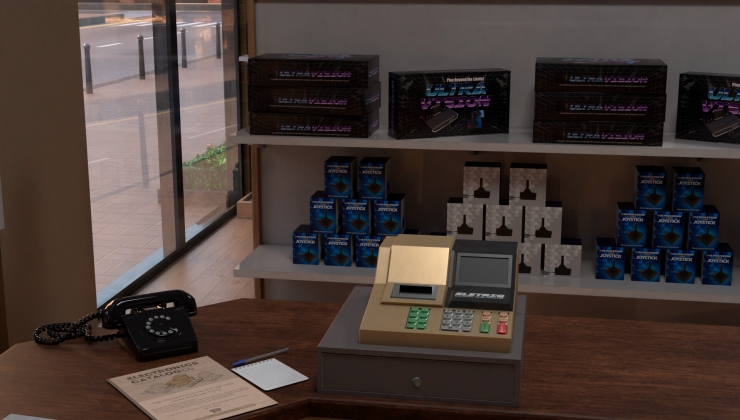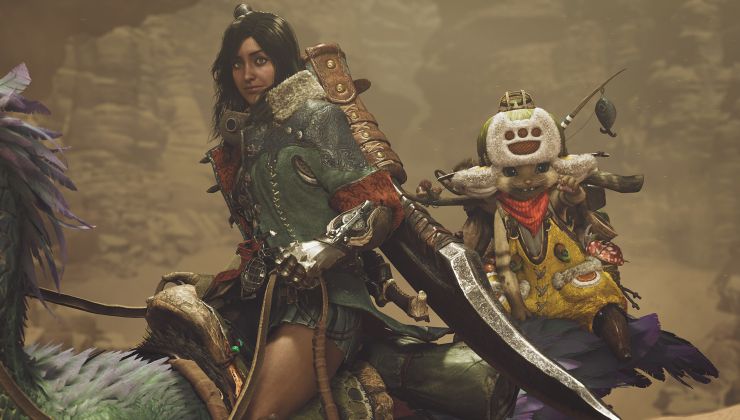As you might have heard by now, Canonical has made the decision to drop 32bit support from Ubuntu 19.10 onwards.
Writing on the mailing list, as well as this post on Ubuntu's Community Hub, Canonical gave a reminder that the decision isn't coming without warning. It was proposed last year and it was followed up with another post detailing a final decision to be made in the middle of 2019. So here we are, the decision seems to have been made.
The problem isn't hardware, as likely around 99% of people nowadays have a 64bit capable computer. Going by our own statistics, from what 2,254 users told us only 4 are using a 32bit Linux distribution. The issue then, is mainly software and libraries needed to actually run 32bit applications. This is where it sounds like there's going to be plenty of teething issues, with a number of people not too happy about the decision.
Steam, for example, is one such application along with plenty of 32bit games that will likely never get updated, although Canonical did say they're "in discussions" with Valve about it. There's also GOG, Humble Store and itch.io which all provide a number of direct-download 32bit games, which do not supply the required 32bit libraries to run. It doesn't sound like they have been given any thought (at least they haven't been mentioned).
Another of the major problems being Wine, with a discussion now happening on their mailing list. The discussion doesn't seem to be too positive, with developer Henri Verbeet even saying "I think not building packages for Ubuntu 19.10 would be the only practical option.", although Andrew Eikum's idea of using the Steam Runtime could be an interesting way around it.
What are your thoughts?
with the debian-multimedia repo,
Is there still such a thing? I remember big problems with the "usual" Debian multimedia site, and living fine without it since then.
Edit: Just checking and it looks like most of those work fine. Hmm. Does anyone have any comments on the KDE Debian spin?
Running Debian with KDE for, dunno, two decades? Sure worth a try.
I mean, getting rid of old technology is always a pain for some. Look at Adobe Flash, the entire world worked hard for a decade to get rid of that nightmare. It will hurt some to rip it out but sometimes we need to clean out the closet.
If y'alls problem with this is old 32bit games, why can't you just keep a partition with current Ubuntu installed, and run the games on that one?That`s what I am going to do with my non Steam games. But as soon as one of my family members asks for some Windows software to be run via Wine, I fear Ubuntu will be purged. Because, as per Wine developers, 64bit Wine will not be able to install most 64bit Windows apps. And I do not like rebooting into other OS very often.
Last edited by omicron-b on 21 Jun 2019 at 11:20 am UTC
Switching from *Buntu to Antergos is a project I've had on the table for a few years anyway
i think you have to choose another distro Antergos is dead:
[https://www.phoronix.com/scan.php?page=news_item&px=Antergos-EOL](https://www.phoronix.com/scan.php?page=news_item&px=Antergos-EOL)
If y'alls problem with this is old 32bit games, why can't you just keep a partition with current Ubuntu installed, and run the games on that one? I mean, times change. One can't expect an old binary to run forever, that's just not how it works.
At that point I might as well switch back to Windows. Old games work fine on that OS and will for the foreseeable future. I frequently play Virtua Tennis (2002), Civilization 4 (2005) and Modern Warfare 2 (2009) and I guess the most convenient way to continue to do so is to just use Windows.
Microsoft is finally fixing its update policy and if you need a unix environment you can install Linux inside Windows 10, which is not a bad OS at all. I'm using Linux (Ubuntu) since the Vista disaster but it's becoming just too incovenient and I'm starting to pondering the possibility of switching back...
Last edited by whatever on 21 Jun 2019 at 10:32 am UTC
Last edited by legluondunet on 21 Jun 2019 at 10:40 am UTC
Arch is out of the question. Fedora's better, but I feel it's still a bit too advanced for beginners. Maybe Debian or something Debian-based like MX Linux?
Last edited by ixnari on 21 Jun 2019 at 11:04 am UTC
Maybe Debian or something Debian-based like MX Linux?Did anyone test Linux Mint Debian Edition? I will try to test it on weekend, I hope it is straightforward enough for new users, especially installing up to date Nvidia driver. Maybe Mint Team enables backports by default? Otherwise nvidia-driver-390 would be installed from repos, which is bad for Proton.
Arch is out of the question. Fedora's better, but I feel it's still a bit too advanced for beginners. Maybe Debian or something Debian-based like MX Linux?
Good question. I like my Debian, but wouldn't recommend it to beginners.
Solus?
Elementary?
Deepin?
Windows also uses a sort of virtualisation or container technology for 32bit applications, which is really what Canonical are suggesting here to do as well. I'd wait and see how well that works first, or if perhaps Canonical make it easier to access from within Ubuntu.
I guess I'll wait to see how the situation evolves, switching OS is not a fun experience!
I'm on LTS, always have been, so I'm safe for now, but the next LTS could be broken beyond repair...
And the timing is just perfect as well
Yep, definitely good timing Canonical, good job! A disruptive change just before the next LTS and the Windows 7 death.
Windows also uses a sort of virtualisation or container technology for 32bit applications, which is really what Canonical are suggesting here to do as well. I'd wait and see how well that works first, or if perhaps Canonical make it easier to access from within Ubuntu.I have no doubt that Windows uses container technology. That container might as well be a colander though, for all the good it does to protect the core OS from nasty software.
Didn't Valve select Debian for SteamOS? So Valve would simply swap Ubuntu with Debian as most recommended target. Quite natural to expect that.
Exactly why I said that they could offer their own desktop edition. For newbies it would be a good start since all drivers are included by default. It would have to be a little more mainlined than SteamOS proper though and stripped of all SteamOS-Compositor stuff too.
Edit1: If they could up their game, Valve could even advertise it in the Steam client (an OS for gamers, by gamers). Personnally, I'm probably going to switch to Debian with backports or Debian testing, if things get sour with Canonical, but my toughts are all about new gamers coming from Windows. They need an easy Linux solution. I think Valve is in a good position to provide that.
Edit2: I still think and hope that Canonical is just testing the waters and that it probably won't make it to 20.04. It wouldn't be the first time that they backtrack. I always stick to LTS versions with gpu driver ppa, because of this king of stuff. Never had problems this way.
Last edited by Mohandevir on 21 Jun 2019 at 1:20 pm UTC
.... This is going to end up like Mir, Unity, Upstart, etc. Where they'll bend to the popular vote after a release or two. After they lose all their users to other distributions.
I've been a pretty steady Ubuntu user and admirer since 8.04, and I find it necessary to abandon distro every few years or so because of some policy change like this. I went to Linux Mint when Ubuntu shoehorned a half-baked grub 2 into 9.04 (or 9.10, whichever) because it broke my install. I came back with 12.04 when Steam became a thing, and left again at 16.04 cause I got tired of broken Mir/Unity promises---especially Unity, which had begun to feel like a straightjacket. Jumped around to OpenSuse and KDE Neon and Solus and a couple others before settling on Manjaro briefly.
I came back with Xubuntu 16.10 and looks like it'll be time to do the distro jitterbug again.
This is a gaming site, so… what does it mean for games?
No more legacy 32bit WINE games (almost all of my WINE collection and 95% pre-2010 Windows™ games)?
Lots of native closed-source Linux games, like "Aquaria" (which developers went defunct) rendered unusable? Who will make Snaps for those?
Dropping 32bit support is foolish, IMO. My condolences to "*buntu" users. :(
Thank you for your condolences. You make a good point about a limitation of snaps. For me, another one is that almost every snap I ever tried was unable to access my data partition---where I keep all my music, videos, pix, and games.
Not really. Debian Stable and Ubuntu LTS have had roughly the same release cadence of 2 years. In fact Debian 10 is only a few weeks away.
LTS may be, but not regular Ubuntu which is more commonly used among desktop users. Ubuntu LTS is really more of a server distro, same as Debian stable.
No it is not. On all my desktops I run Ubuntu LTS. With HWE you are not missing out a lot and I wouldn't want to update my desktops every 6 months.
2) It will be easy for Ubuntu derivatives to just put the 32-bit libraries back.
But maybe it is a big deal. Maybe there's some huge amount of work involved in maintaining this stuff--or rather, in using the stuff Debian is already maintaining . . .
Could someone enlighten me on this?
It won't be easy, definitely. Having to build by yourself all 32 bit deps will take time, not to mention that you have to keep track of the current version of your 64 bit counter part, as you can get into some troubles if your 32 bit versions gets newer/older mayor versions (this is in case you don't go for the snap "solution"). Without the QA variable, I can say that in this scenario it will be better that you just keep updated 32 & 64 bit as in the end will be the same work load.
By the way, I'm not sure how Andrew Eikum's solution will work in order to fix Mesa/Nvidia 32 bits deps. From my point of view, that is something that will probably be impossible to handle (mainly with Nvidia).
Not really. Debian Stable and Ubuntu LTS have had roughly the same release cadence of 2 years. In fact Debian 10 is only a few weeks away.
LTS may be, but not regular Ubuntu which is more commonly used among desktop users. Ubuntu LTS is really more of a server distro, same as Debian stable.
No it is not. On all my desktops I run Ubuntu LTS. With HWE you are not missing out a lot and I wouldn't want to update my desktops every 6 months.
Just to be on the same page (bold on me):
"Furthermore, we define the LTS to be:
Enterprise Focused: We are targeting server and multiple desktop installations, where the average user is moderately risk averse.
Compatible with New Hardware: We will make point releases throughout the development cycle to provide functional support for new server and desktop hardware.
More Tested: We will shorten the development window and extend the Beta cycle to allow for more testing and bug fixing
and clearly state that it is not:
A Feature-Based Release: We will focus on hardening functionality of existing features, versus introducing new ones1, except for in the areas of Online Services and Desktop Experience2.
1. Exceptions for priority projects will be documented.
2. Because these two areas of development are relatively new, they still require new features to satisfy the original reasons for their creation
Cutting Edge: Starting with the 14.04 LTS development cycle, automatic full package import is performed from Debian unstable1
1. This is due to deploying ProposedMigration in the Ubuntu archive."
Source:
https://wiki.ubuntu.com/LTS
Thank you for your condolences. You make a good point about a limitation of snaps. For me, another one is that almost every snap I ever tried was unable to access my data partition---where I keep all my music, videos, pix, and games.
Only your data partition? Or anything beyond the snap sandbox? Because that happens to non-"classic" installs.
https://blog.ubuntu.com/2017/01/09/how-to-snap-introducing-classic-confinement













 How to set, change and reset your SteamOS / Steam Deck desktop sudo password
How to set, change and reset your SteamOS / Steam Deck desktop sudo password How to set up Decky Loader on Steam Deck / SteamOS for easy plugins
How to set up Decky Loader on Steam Deck / SteamOS for easy plugins
See more from me